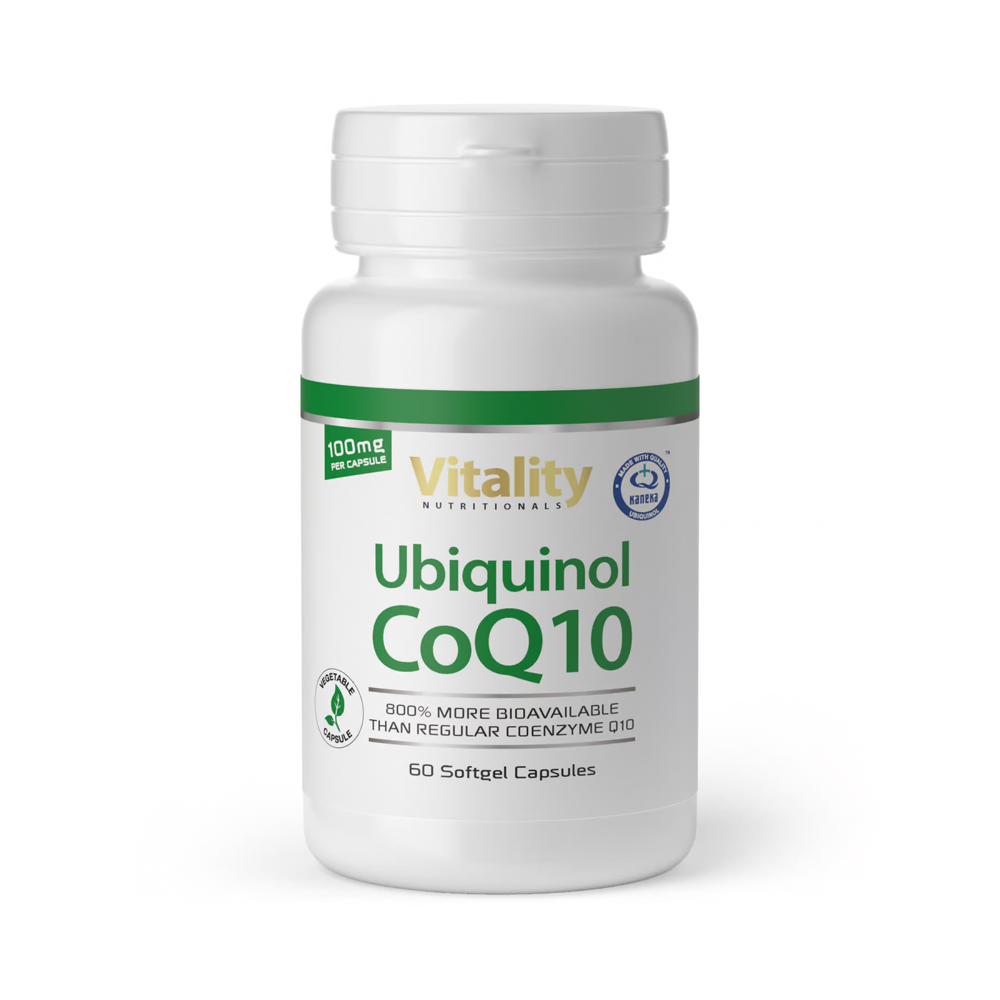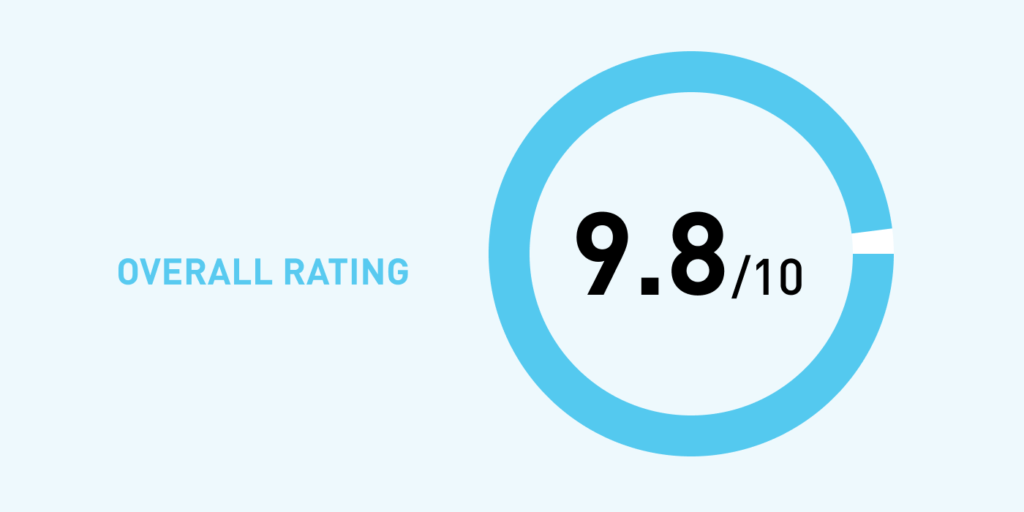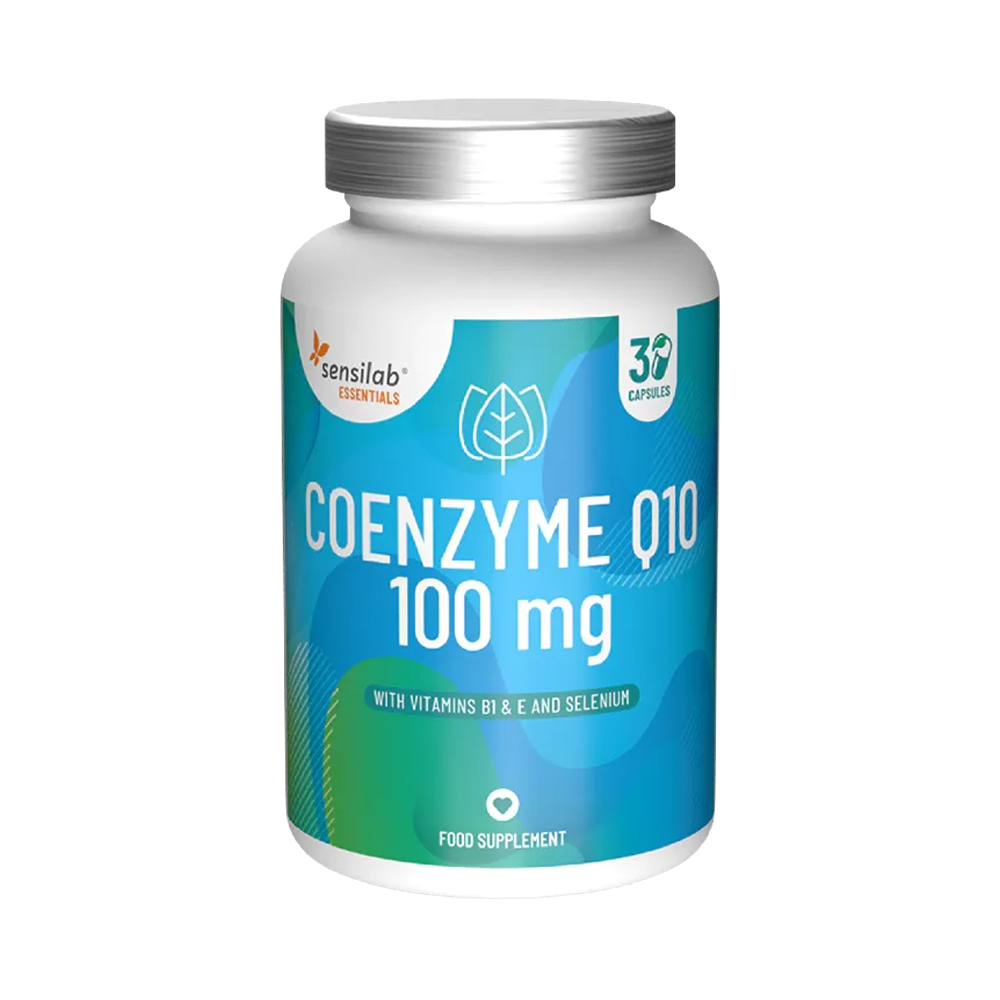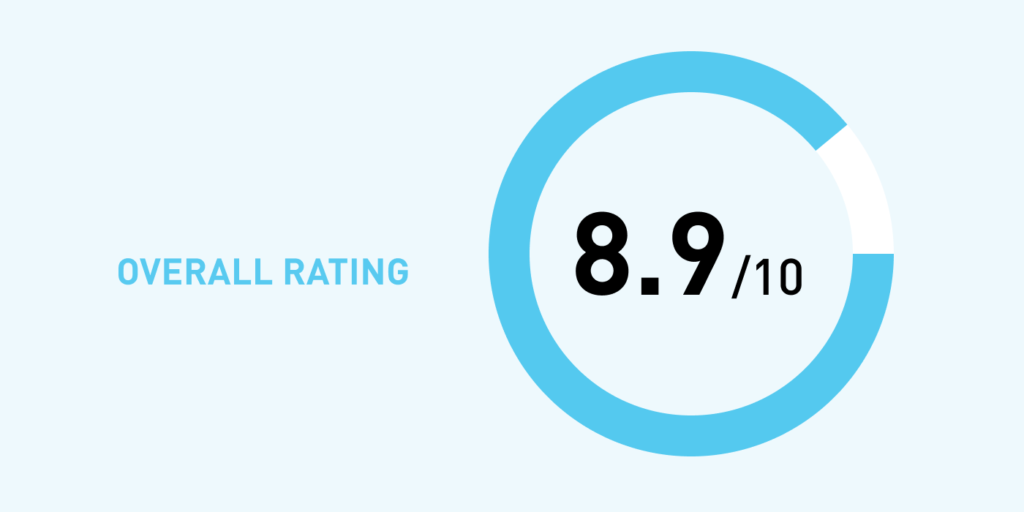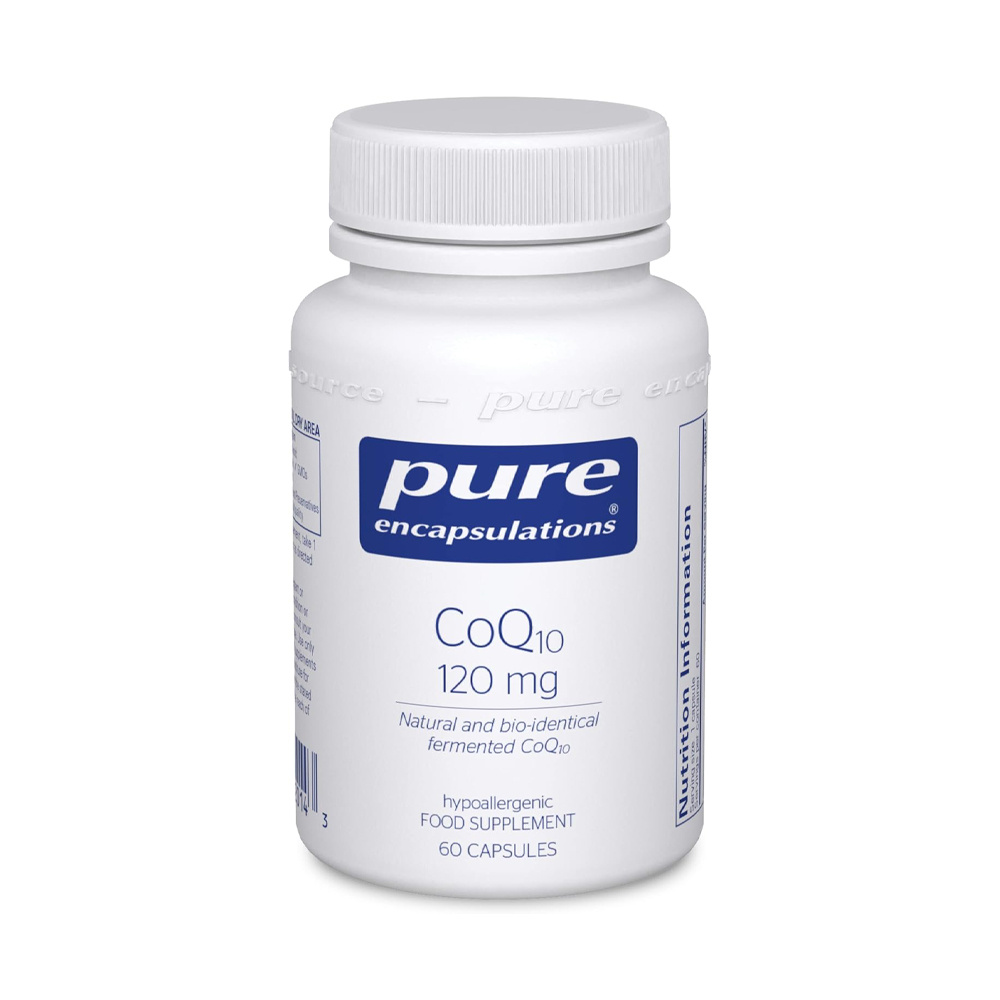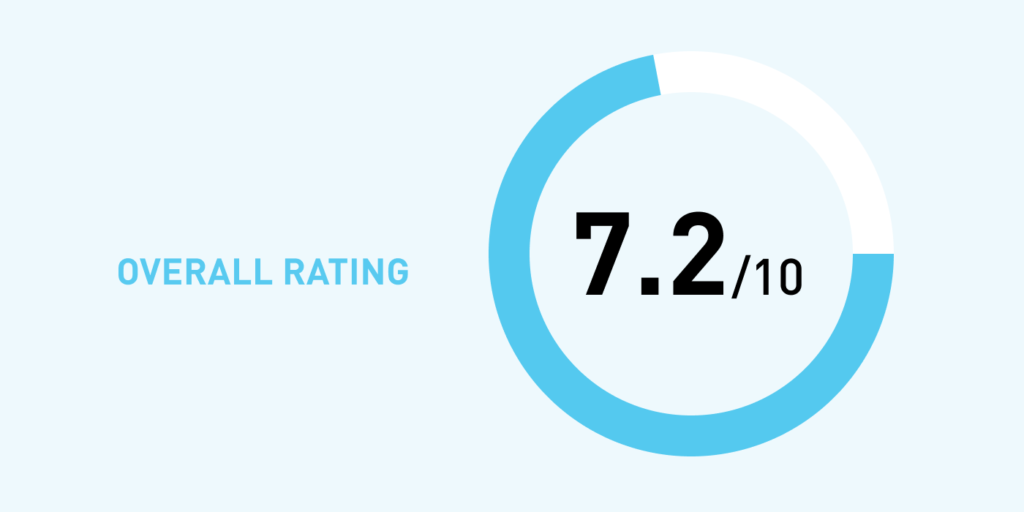Advertisement

Coenzyme Q10 supplements are widely used. However, the range of products is so large that it is easy to lose track of what is available. For this reason, and to make your purchase decision easier, we have taken a closer look at popular Q10 products for you.
What is coenzyme Q10?

Coenzyme Q10 (also known as CoQ10 or Q10) is a naturally occurring chemical compound in the body. It plays an important role in the production of adenosine triphosphate (ATP), the main source of energy in the body’s cells.
CoQ10 is also a powerful antioxidant that protects cells from oxidative stress caused by free radicals. It is present in high concentrations in the heart, liver and kidneys, and in smaller amounts in other tissues and organs.
Coenzyme Q10 supplements are often taken to support heart health, healthy aging and brain function and are associated with numerous health benefits. The fact is that the body cannot survive without coenzyme Q10, and if the levels drop, it can have health consequences. Scientists have thoroughly investigated the role of CoQ10 in the biochemistry of the human body.
Don’t believe these myths about coenzyme Q10

Like many dietary supplements, coenzyme Q10 is surrounded by various misconceptions. It’s crucial to be able to distinguish scientific facts from misinformation when making decisions about your health. Let’s explore some common myths about coenzyme Q10 and why they’re incorrect.
Myth 1: All coenzyme Q10 supplements are the same
There are significant differences between coenzyme Q10 supplements. Most supplements contain ubiquinone, the conventional form of coenzyme Q10. Ubiquinone is the oxidised form of CoQ10. The body must first convert it into the active form, ubiquinol, before it can be utilised.
As the active form of coenzyme Q10, ubiquinol is 800% more bioavailable than ubiquinone, the conventional CoQ10. Scientific studies have shown that CoQ10 blood levels increase immediately when ubiquinol is taken and remain high for an extended period of time.1
Healthy people under the age of 20 or 30 can easily produce coenzyme Q10 themselves and convert it into ubiquinol. Therefore, conventional Q10 (ubiquinone) is suitable for them as a dietary supplement. However, people over the age of 40 should preferably take ubiquinol Q10. This is because from this age onwards, the body produces less and less ubiquinol from ubiquinone Q10.
An adequate supply of ubiquinol is important to keep Q10 levels high enough to stay healthy and energised. Since ubiquinol is the active form of Q10 and does not need to be converted first, it can be used by the body directly. If you are over 40, you should always choose ubiquinol over ubiquinone.1
Myth 2: A CoQ10 deficiency can be easily corrected through diet alone
While coenzyme Q10 (CoQ10) is present in various foods such as fatty fish, organ meats and whole grains, the quantities are minimal. The amount of CoQ10 obtained through diet alone is typically insufficient to address a deficiency or meet the body’s daily requirements.2
Myth 3: Coenzyme Q10 supplements have potential side effects
Coenzyme Q10 is a natural food component that has been consumed by millions of people in the form of dietary supplements for many years. Hardly any side effects were observed in studies of thousands of participants, regardless of the Q10 dose. These include long-term studies conducted over many years.3
Facts about Q10 that you may not know

After the myths, let’s look at some interesting facts about Q10 that you may not know. After all, it is an extremely versatile compound that plays multiple vital roles in the body.
Fact 1: People taking cholesterol-lowering statins may benefit from taking ubiquinol
Statins (cholesterol-lowering medications) fulfil their task by inhibiting an enzyme in the liver that is involved in cholesterol production. However, this enzyme is also involved in the synthesis of CoQ10, so taking statins can lead to a reduction in CoQ10 levels.
Studies have shown that coenzyme Q10 supplementation can help to compensate for the decline in CoQ10 levels caused by statins, thereby offering potential benefits for heart health.4
Fact 2: Ubiquinol promotes fertility
Low sperm count is a common cause of male infertility. A recent study showed that ubiquinol can significantly increase sperm count.
60 men aged between 20 and 40 years were given 150 mg of ubiquinol daily for 6 months. The study showed that the sperm count increased by 53% and sperm motility (ability to move) increased by 26%. The number of fast-motile sperm increased by up to 41%, the number of slow-motile sperm decreased by about 29% and the number of non-motile sperm decreased by 55%.
Fact 3: Q10 plays an important role not only in the beauty industry, but also in sports
Q10 is mainly known from advertising as a component in the beauty sector. However, it also plays an important role in other areas, particularly in sports. For athletes, it should be seen not as performance-enhancing, but as regeneration-promoting. One study shows that with physical activity, the additional intake of coenzyme Q10 can extend the time to exhaustion.5
What you should consider when buying a Q10 product
When selecting a CoQ10 supplement, quality should be your primary consideration. The market for dietary supplements is so large that it’s easy to lose track. While this vast range of options can be overwhelming, it’s important to prioritize quality when it comes to your health.
For optimal benefits, look for a supplement that contains ubiquinol (the active form of CoQ10) rather than ubiquinone, particularly if you’re over 40.
The supplement should meet the following criteria:
- 100% natural ingredients
- Very high bioavailability
- Sufficiently high dosage
- Tested and certified manufacturing process
- No genetically modified organisms
- Raw materials of the highest quality
- Free from chemical additives
- Easy to take, ideally in capsule form
The following sections explain which product best meets these high expectations.
Broken down for you: the current market leaders for coenzyme Q10 products
To help you choose the best product for you, we have compared the current market leaders for coenzyme Q10 products based on specific criteria.
The products were examined in terms of their ingredients, user-friendliness, general customer satisfaction and other important criteria.
1st place – Vitality Nutritionals Ubiquinol CoQ10


ADVANTAGES
- Contains 100% natural, active form of Q10
- Bioavailability up to 800% higher than conventional Q10
- High dosage of 100 mg Ubiquinol per capsule
- Free from artificial additives
- Produced exclusively in certified companies
- High quality raw materials
- Suitable for vegetarians
- Easy to take in capsule form
- Lactose and gluten free
DISADVANTAGES
- Often sold out due to high demand
CONCLUSION
Vitality Nutritionals Ubiquinol CoQ10 100 mg distinguishes itself through its use of Kaneka Ubiquinol™, the world’s first and only patented ubiquinol ingredient. This natural, active form of CoQ10 is bioidentical to the body’s own ubiquinol, offering bioavailability up to 800% higher than conventional CoQ10. Such enhanced absorption ensures optimal effectiveness for energy production and antioxidant protection.
The supplement provides a potent 100 mg dose of ubiquinol per capsule, free from artificial additives, and is suitable for vegetarians. Produced exclusively in certified facilities, it uses the highest quality ingredients and adheres to stringent manufacturing standards. Its superior bioavailability and premium formulation makes it a standout choice for those seeking the best in CoQ10 supplementation.
2nd place – Sensilab Essentials Coenzyme Q10


ADVANTAGES
- Enriched with selenium, vitamin E, and vitamin B1 for added antioxidant support
- Includes black pepper extract to enhance absorption
- Free from gluten, lactose, soy, and GMOs
- Suitable for vegetarians and vegans
- EU production with GMP standards
DISADVANTAGES
- Only 30 capsules per package
- Contains ubiquinone, which is less bioavailable
CONCLUSION
Sensilab Essentials offers a decent formulation enriched with selenium, vitamin E, and vitamin B1, providing antioxidant and heart health support. Its vegan-friendly formulation, free from common allergens, and EU production under GMP standards ensure quality. While the inclusion of black pepper extract enhances absorption, the 30-capsule package may require frequent repurchasing. Additionally, it uses ubiquinone, which some studies suggest is less bioavailable than ubiquinol. Overall, it’s a good and solid option for those seeking added nutrient benefits alongside CoQ10.
3rd place – Pure Encapsulations CoQ10

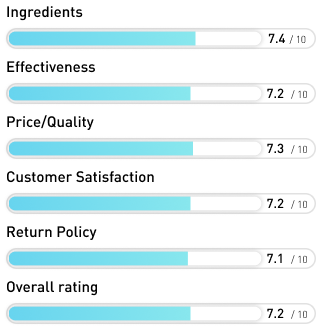
ADVANTAGES
- Bio-identical fermented CoQ10
- Free from common allergens
- Produced under strict quality control standards
- Simple, clean formula without unnecessary additives
DISADVANTAGES
- High price
- Contains ubiquinone, which is less bioavailable
- No additional supporting nutrients included
- Manufactured outside Europe
- Lacks enhanced absorption technologies
CONCLUSION
When examining the Pure Encapsulations CoQ10 formula, we find a supplement that prioritizes purity and allergen-free ingredients. Since it contains no additional vitamins or minerals, the product is well-suited for those seeking a potent and targeted Q10 supplement without extra nutrients. However, similar to the Sensilab Essentials Coenzyme product, it utilizes the less bioavailable ubiquinone form instead of ubiquinol, which coupled with its high price point raises concerns about its overall value. Overall, it offers a relatively basic formulation that can still be the product of choice in individual cases.

